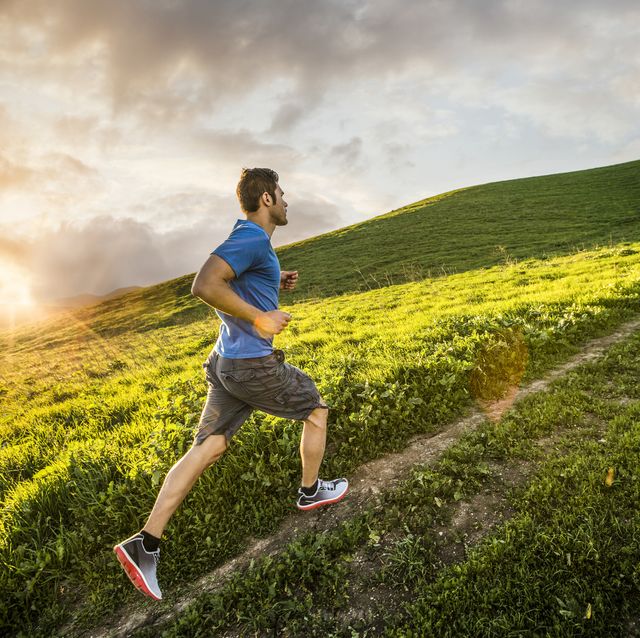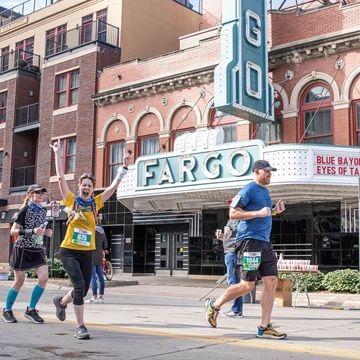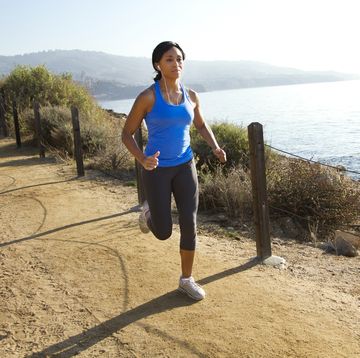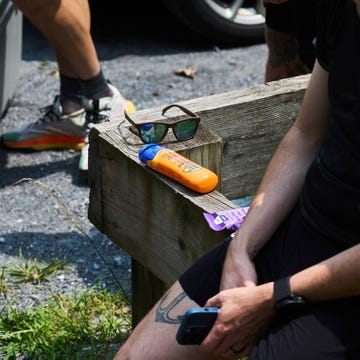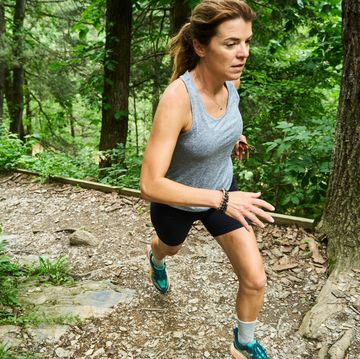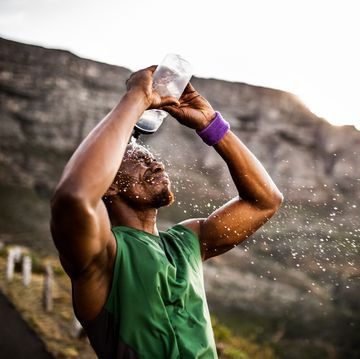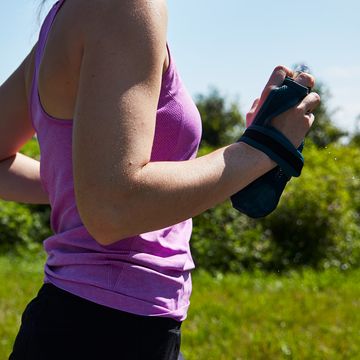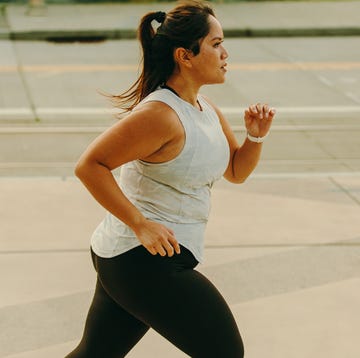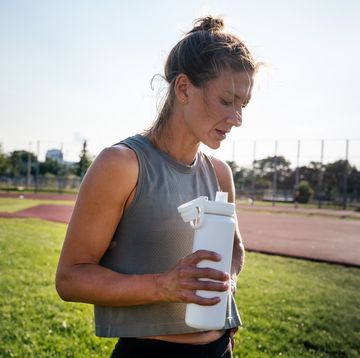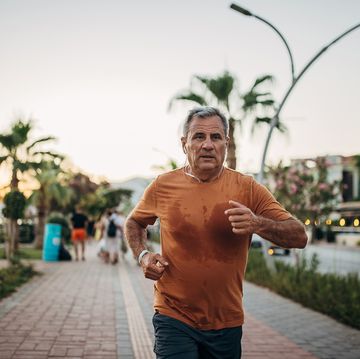- https://www.runnersworld.com/h...https://www.runnersworld.com/h...Simply feeling warm can hurt your performance, even if it doesn’t cause any physiological changes like an increase in body temperature or heart rate, according to a new study published in Physiology & Behavior.
- The perception of warmth can lead to a 9 percent drop in performance, the researchers found.
- Runners can fight this effect by taking measures to improve their subjective feelings of warmth.
You’re probably well aware that heat can hurt your running. Dehydration and a rise in your core temperature can make it harder to maintain a given pace, make you slower at a certain heart rate, keep you from going your usual distance, or all of the above.
That’s basic, objective physiology. But, according to fascinating new research, simply feeling warmer can also hurt your performance, even if your body temperature doesn’t actually rise.
In the study published in Physiology & Behavior, cyclists did two time trials to exhaustion. For both, they rode in a chamber set at 68 degrees Fahrenheit and 44 percent humidity, and they rode at 70 percent of their VO2 max for as long as they could. That intensity generally corresponds to a perceived exertion between somewhat hard and hard; in running terms, it’s around 10-mile race pace.
During both rides, the cyclists wore a specially designed T-shirt with a pocket on the upper back. On one of the rides, the pocket contained an electric heat pad, about 15 by 11 inches, set at about 100 degrees Fahrenheit.
When the cyclists rode without the heat pad, they lasted for just more than 38 minutes at the prescribed intensity. They fared much worse when riding with the heat pad, a little less than 35 minutes, a decrease of 9 percent.
But here’s the key thing: They performed significantly worse with the heat pad even though it didn’t affect key physiological measurements like core body temperature and heart rate.
So while the cyclists reported a greater sensation of heat when they rode with the heat pad, that perception wasn’t matched by what was going on inside their bodies.
Nonetheless, their performance declined by almost 10 percent. For a 25:00 5K runner, a 9 percent drop in performance would mean running 27:15.
The technical term for what the cyclists experienced while riding with the heat pad on is “subjective thermal strain.” How is it possible that just feeling warmer, but not actually being warmer, can so profoundly hurt your performance?
“We think that the key factor is the higher perception of effort rather than the feeling of heat becoming intolerably unpleasant,” researcher Samuele Marcora, Ph.D., of the University of Kent and the University of Bologna, told Runner’s World.
The cyclists rated their effort as harder when wearing the heat pad, even though they were riding at the same intensity in both trials. As a result, Marcora writes in his study, the riders more quickly “reached the maximum level of effort they were willing to exert.” Maintaining a demanding pace with the added discomfort of subjective thermal strain “most likely requires inhibitory control,” Marcora writes.
In overly simple terms, the heat pads unpleasantly distracted the cyclists, making it harder for them to focus on the goal of riding as long as possible at the prescribed pace.
[Smash your goals with a Runner’s World Training Plan, designed for any speed and any distance.]
How can this study help you run better this summer? First, Marcora says, take steps to reduce your subjective feeling of warmth. Make your face and upper back feel cooler by splashing water on your skin, wearing a cap to provide shade, or applying a menthol spray.
Second, and at least equally important, try not to obsess about how warm you’re feeling. Marcora and other researchers in endurance psychology have found that focusing too much on bodily sensations detracts from performance. In the case of running in the heat, a negative feedback loop can occur: You start to feel warm, and you remind yourself that your running can suffer in the heat, which causes you to think that much more about how warm you feel. You get slower and slower.
Instead, use motivational self-talk—like “you’re doing great,” or “you can keep up this pace for another 20 minutes”—to stay upbeat. Focus on what you can do, rather than what the heat is doing to you.

Scott is a veteran running, fitness, and health journalist who has held senior editorial positions at Runner’s World and Running Times. Much of his writing translates sport science research and elite best practices into practical guidance for everyday athletes. He is the author or coauthor of several running books, including Running Is My Therapy, Advanced Marathoning, and Meb for Mortals. Scott has also written about running for Slate, The Atlantic, the Washington Post, and other members of the sedentary media. His lifetime running odometer is past 110,000 miles, but he’s as much in love as ever.
